The race for the French presidency has been widely viewed as a tussle of the right: Marine Le Pen versus Francois Fillon. But could a 39-year-old independent centrist with a pro-trade agenda buck the populist trend and take the Élysée Palace?
Emmanuel Macron stands out from the other top tier candidates: he’s a pro-business progressive, pro-EU and pro-free trade.
Who is Emmanuel Macron?
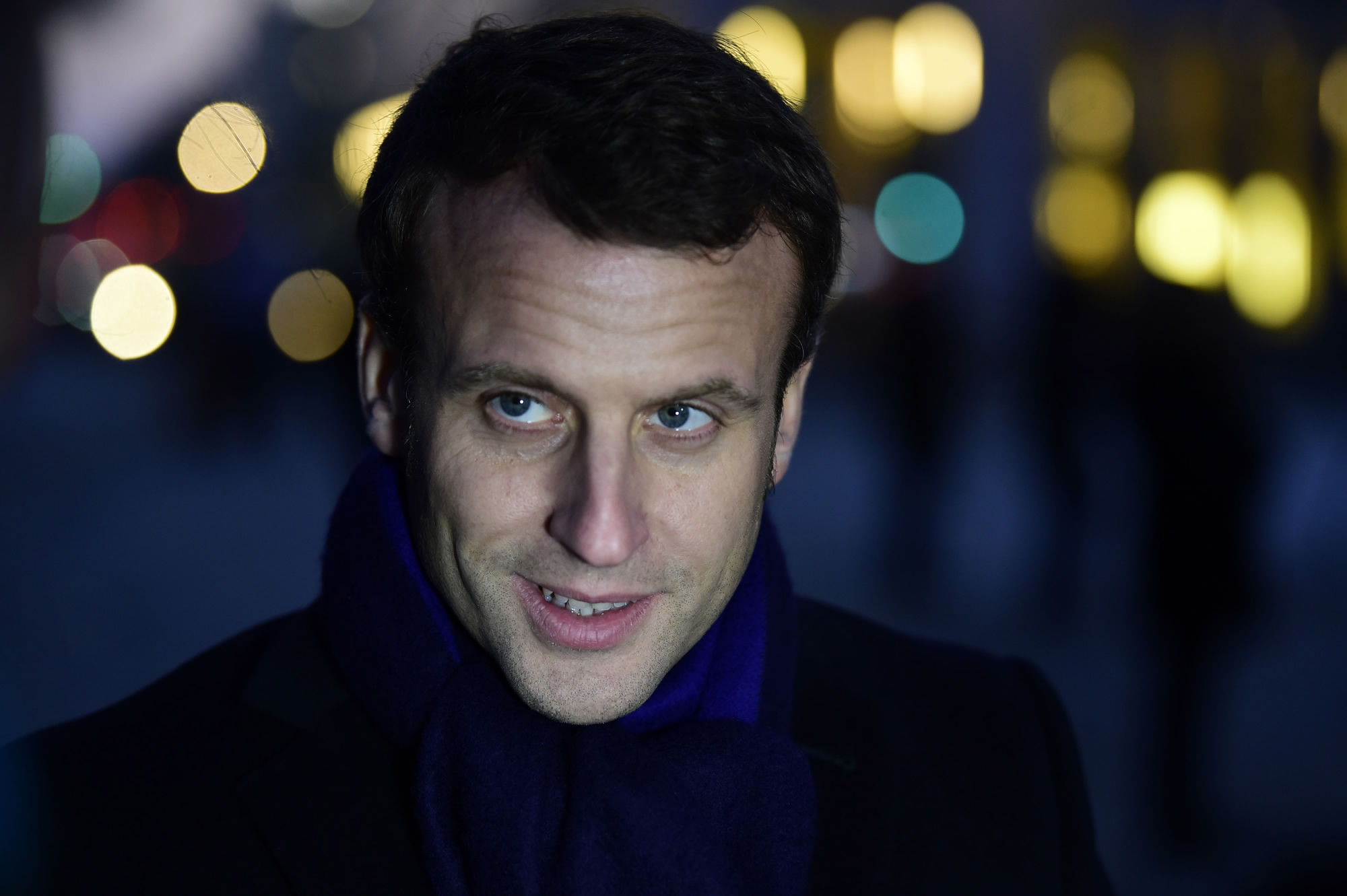
French presidential candidate Emmanuel Macron talks to journalists on January 10, 2017. /CFP Photo
Macron is just 39 years old, but already has experience at the top of business and government.
He worked as a banker for Rothschild and Cie, and then served as economy minister under current president Francois Hollande. Macron pursued a pro-business agenda that ran counter to the traditional policies of the Socialist party – he was labelled a maverick and made enemies within the party as a result.
He quit the Socialists in order to set up his own political party – En Marche – and is now drawing large crowds of younger voters to his rallies and accelerating in the polls – standing at around 20 percent in the first round with momentum building behind him. But he has never held elected office and has no party machine behind him.
Macron is in favor of making France more business-friendly, more open to free trade and playing a central role in strengthening the EU. He wrote in the Financial Times this week that protectionism is an “illusion,” and backed “opening our borders to trade while cracking down on tax avoidance and beggar-thy-neighbor regulatory policies.”
State of the race
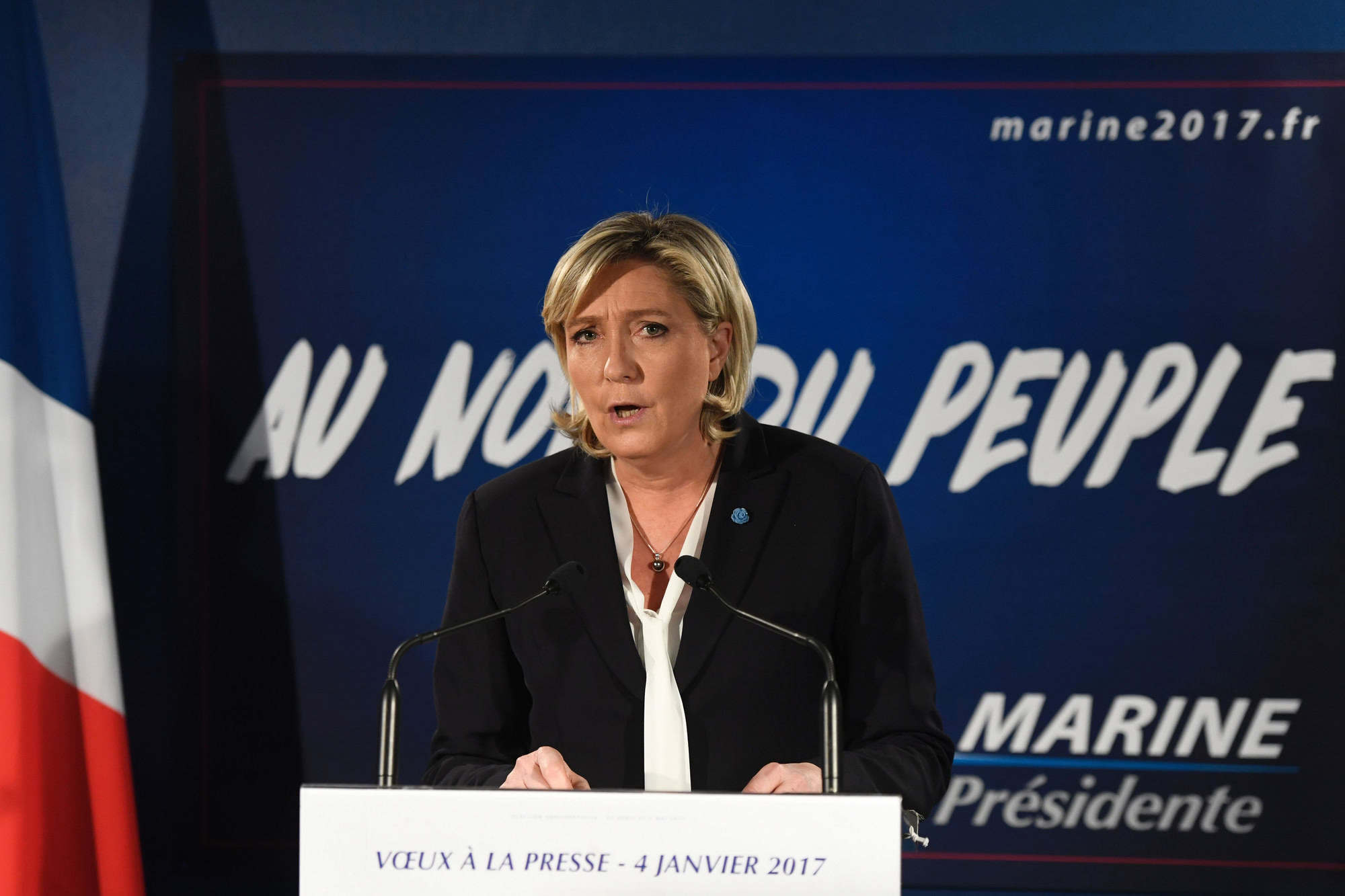
Marine Le Pen, leader of the French far-right Front National party, delivering her New Year's wishes to the press in Paris on January 4, 2017. /CFP Photo
The French presidential election involves two votes – the first on April 23 features multiple candidates, and the second on May 7 is a run-off between the top two in the initial round.
Populist protectionist Le Pen is expected to sail through the first round of voting, which will feature multiple candidates. The latest poll, by Ipsos, places the Front National leader at 27 percent, and her support is seen as solid. Les Republicains candidate Fillon is at 26 percent, but his vote is seen as more fragile, particularly after an embezzlement inquiry was launched into claims his wife held a “fake job” in his office.
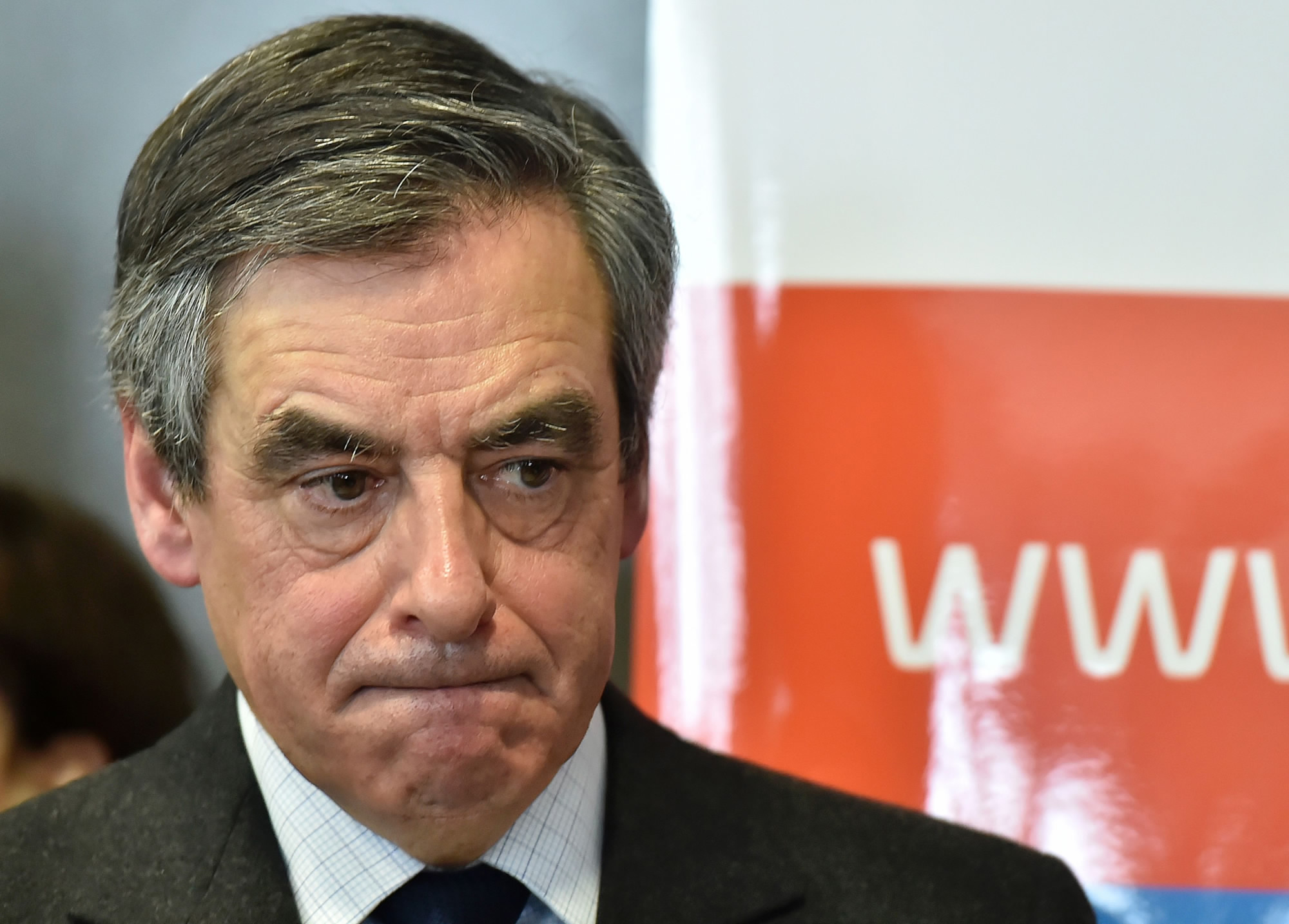
Right-wing candidate for the upcoming presidential election Francois Fillon looks on during the launch of DroiteLib on January 25, 2017 at the Cite du Vin in Bordeaux. /CFP Photo
The Socialist party – which will have a run-off for its candidate on Sunday – is deeply unpopular following the administration of Hollande. Several candidates have conceded that the party has no chance of victory. The likely standard-bearer, Benoit Hamon, is polling at just 7 percent. The other candidate to make a mark in the presidential stakes is far-left populist Jean-Luc Mélenchon on 14 percent.
This has left a vacancy in the middle, opening a route to the presidency for centrist Macron.
“My bet is that a strong, progressive view will gather voters from left, right and center,” he told the Wall Street Journal in December.
Why does Macron have a chance?
The options in front of the French people are stark: a populist protectionist in Le Pen, a traditional Conservative in Fillon, a far-left populist candidate in Mélenchon.
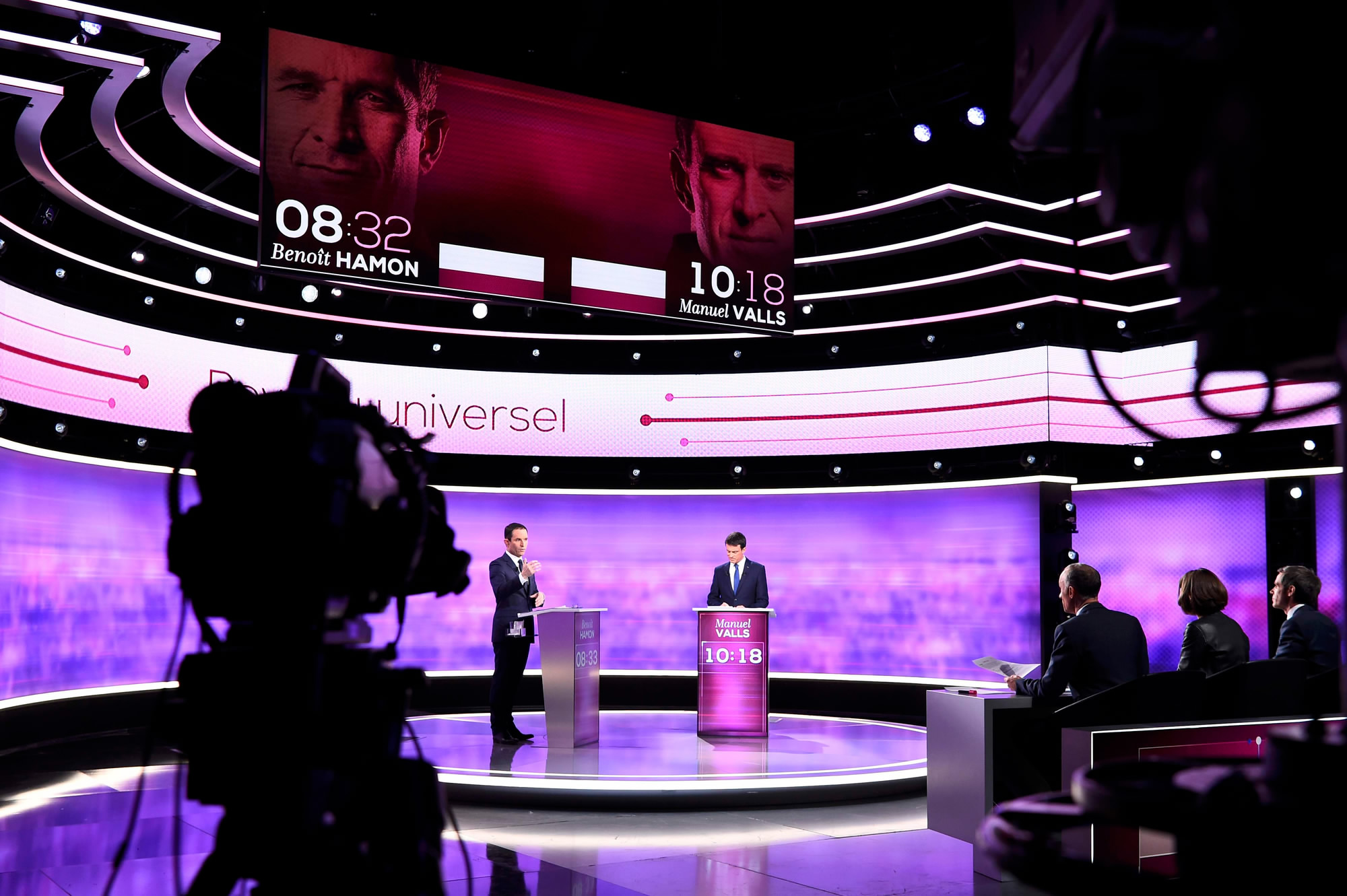
French Socialist party politicians, former prime minister Manuel Valls (R) and former education minister Benoit Hamon attend the final debate in the French left's presidential primary election in La Plaine-Saint-Denis, near Paris on January 25, 2017. /CFP Photo
The final option will hail from the unpopular Socialist party, the grouping which sitting President Hollande represents. It is here that an opportunity for Macron opened up last Sunday, as centrist Socialist candidate Manuel Valls trailed to leftist opponent Hamon, who is best-known for a universal income policy.
If Hamon prevails in a run-off election on January 29, as analysts expect, a wide gap will appear in the center-ground and Macron looks poised to take advantage.
It’s expected that the final round of voting will see Le Pen hit a ceiling, and whoever her opponent is will prevail. The latest polling from Ipsos puts Macron at 64 percent in a second round battle with Le Pen, against 62 percent for Fillon in a similar tussle. Macron is also shown beating Fillon 54-46, should the two men make the final round.
France and China
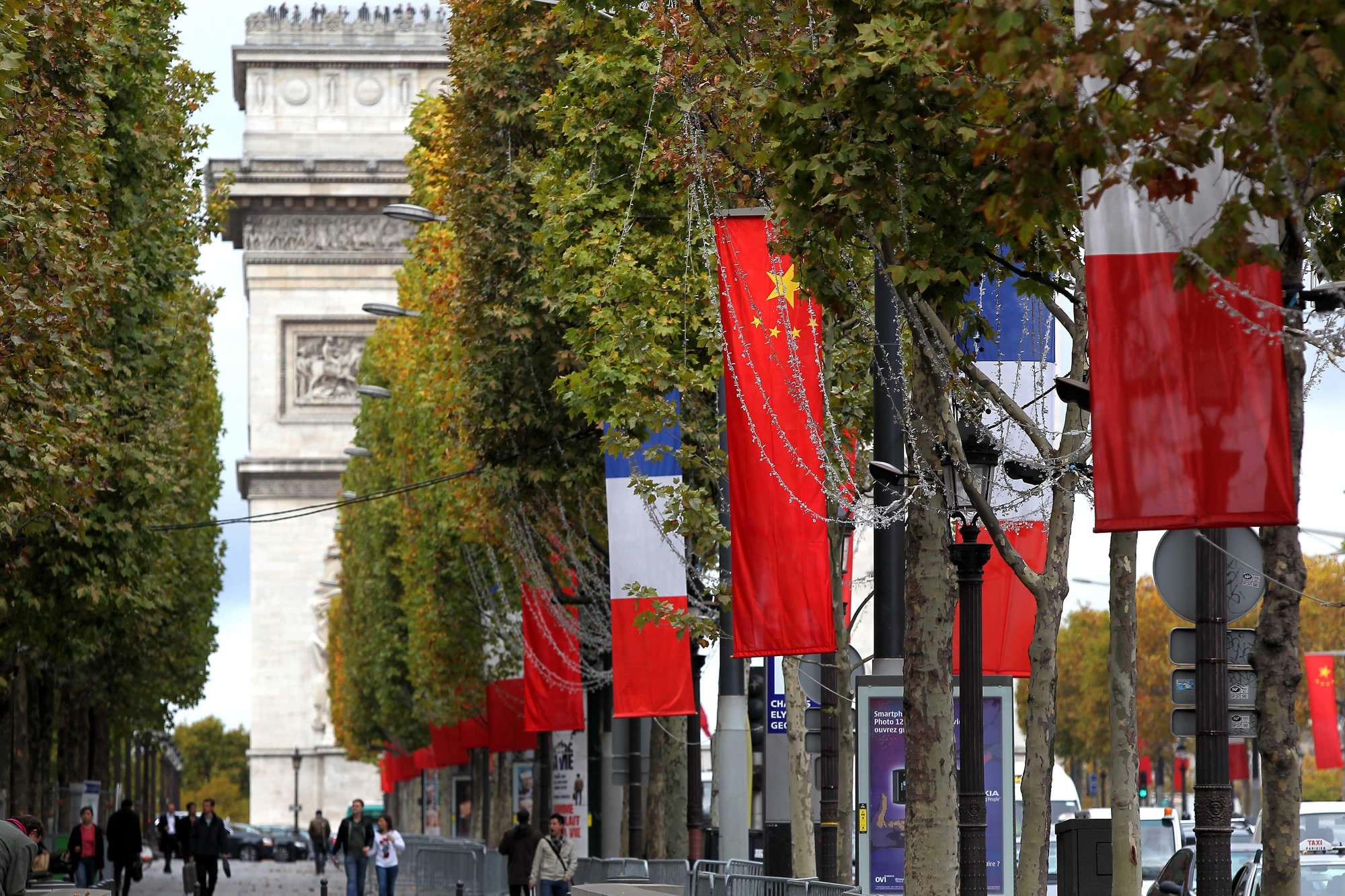
The Chinese and French flags fly on the Champs-Elysees, Paris. /CFP Photo
With the uncertainties provoked by the arrival of Donald Trump and his protectionist message to the White House, and the unsettling of Europe with Britain’s probable exit from the European Union, China is looking for stable trading partners in the West and proponents of free trade.
Investments in France from China have grown in recent years, and Britain’s exit from the European Union is likely to accelerate that trend.
Chinese Ambassador to France Zhai Jun recently told Xinhua that in 2017 China and France will work together to further promote bilateral trade and cooperate in the nuclear power, aerospace, and automotive sectors. He also stressed that the China-proposed Belt and Road initiative opens new channels for the growth of China-France and China-Europe economic and trade ties.
But an open-looking France is largely dependent on the stance of the person at the helm. The presidential election race will be closely watched from Beijing.









